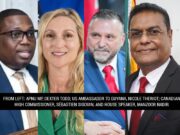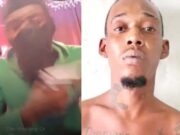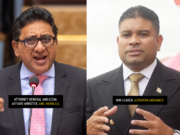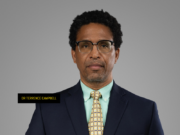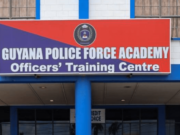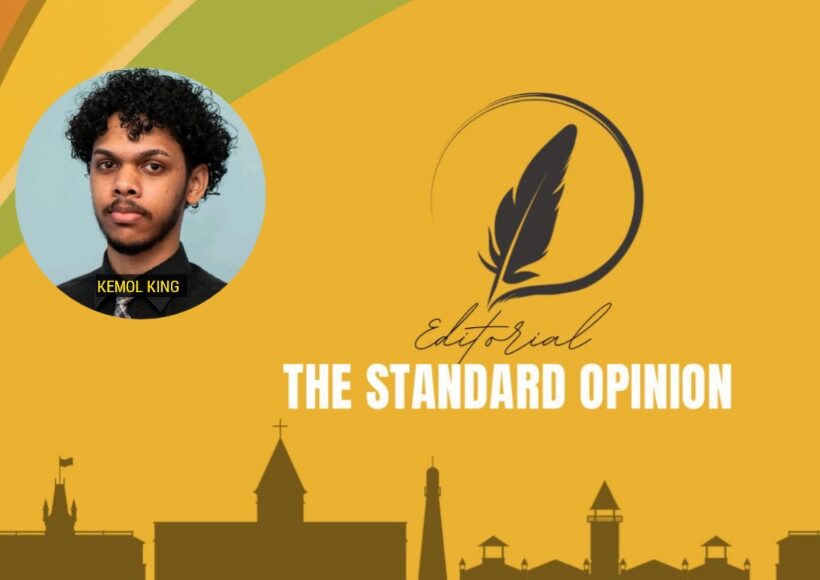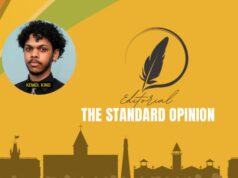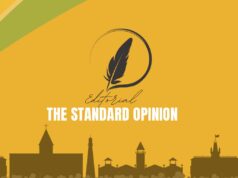By Kemol King
In moments like this, emotions are running high and public trust in the Guyana Police Force has all but collapsed. We have to ask ourselves not just what feels right, but what works. That’s why I believe that the best path forward in the Adriana Younge case is not a full-blown independent investigation, but independent observation, of an investigation conducted by the Guyana Police Force.
Younge’s family wants an investigation by a foreign agency like the FBI or Scotland Yard. This request is understandable, given the optics of the handling of this and other recent cases by local police. What people want is assurance that justice is not being sabotaged by incompetence or corruption. Independent observation achieves that without undermining the role of the Guyana Police Force as the investigative body.
This suggestion is about helping the Guyana Police Force regain the public’s confidence by subjecting its work to the scrutiny of an external, neutral, and reputable body. The police, if they intend to conduct themselves professionally, should welcome such scrutiny. It creates an opportunity for their work to be validated by a third party, and begin the process of restoring public trust in a force whose credibility is at an all-time low.
This approach is not without precedent. In 2020, when the Guyana Elections Commission had lost public confidence following multiple attempts by rogue officials to rig the count, it was the involvement of international observers, most importantly, the CARICOM Observer Team, that helped lend credibility to the process. The People’s Progressive Party (PPP), then a candidate, strongly supported the presence of that independent interlocutor, recognizing that it was essential for regaining public trust. The current administration is therefore well positioned to understand (better than most) the value of outside observers in this moment of national uncertainty.
It does not require the Guyana Police Force to step aside, but it does require them to accept that credibility cannot be restored through press releases and assurances. In moments like this, it must be earned. It may not resolve every doubt or silence every critic. But it might be the only path left that addresses reasonable concerns about the credibility of the police, while not surrendering their jurisdiction to external actors.
Public distrust of the police has been building steadily in Guyana, and the Adriana Younge case has sharply intensified it. The facts of the case are by now well known: Little Adriana was at the Double Day Hotel in Tuschen with her grandmother on April 23. The following morning, her body was discovered in the hotel’s pool. Public reaction was swift and ruthless, fueled largely by an amorphous combination of incompetence and corruption in the handling of the case by the police. It can’t be stressed enough that the original police handlers of this case must not be anywhere near it moving forward. Even if the truth about the circumstances of Younge’s death are tame in comparison to most of the public’s suspicions, the initial handling of this matter by the police has so profusely traumatised this country’s people that they would find it difficult to accept the possibility that there isn’t a conspiracy to cover up a murder.
The continued skepticism is evident in the family’s movement for a second autopsy, which was not greenlit, as of the time of publication of this editorial. The first autopsy, conducted by three eminent forensic pathologists, found that Younge drowned. There were no broken bones. No signs of sexual violence. The process was well observed, as explained by Health Minister Dr. Frank Anthony in a May 2 statement.
Still, the family’s lawyer, Darren Wade, has written to the Medical Council of Guyana seeking an emergency license for Dr. Hubert Daisley, a Trinidad and Tobago-based pathologist, to conduct the procedure. The lawyer said the goal is to conduct the examination before the funeral, scheduled for May 5, and that the family is seeking closure so they can grieve in peace.
Dr. Daisley has come under public scrutiny before in a 2013 case in Trinidad in which he incorrectly ruled a death a homicide when it was later found to be asthma-related. Recent reporting about this controversy in Guyana news has already poisoned the well, setting the stage for another swell of public conflict and confusion if Dr. Daisley ends up doing Younge’s autopsy and makes conclusions that challenge the findings of the first one.
There is also the matter of custody of the body. Minister Anthony noted that the state handed over the body to the family following the first autopsy. As a result, if the outcome of a second post-mortem were to contradict the initial findings, it could raise questions about whether any discrepancy reflects genuinely new evidence or simply the consequence of the body being outside of state custody in a less controlled environment.
Clearly, this movement for a second autopsy has its problems and is not likely to be fruitful. But it is ultimately being pursued because the family wants answers and these can come with an investigation that is transparent and well scrutinized.
Another concern is the potential for further unrest.
While the family has made it clear that they intend to proceed with the funeral on Monday and do not support plans to protest, others argue that Younge should not be buried until another autopsy is completed and could take to the streets. The risk of escalation is real. Law enforcement, including the police and the army, must be proactive and not allow a repetition of the events following the first autopsy.
Protest is a right. It is a cornerstone of democracy, and even in times of grief and tensions, people must be allowed to express their anger and demand accountability. But alongside those legitimate expressions of outrage, there are opportunistic actors who use moments of national pain to sow chaos. They loot stores, attack innocents, and inflame ethnic tensions. These actions are criminal and they distract from the cause. They shift focus away from the need for justice for a dead child, and place it instead on the state’s need to restore public order and protect lives and property. Let’s not fall for it again.
